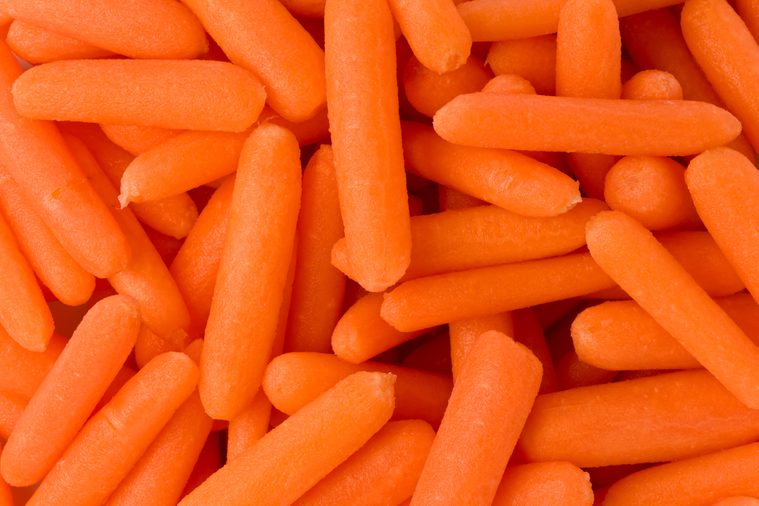
Skin-friendly foods
Some say the eyes are the windows of the soul. Similarly, your skin is a window on your overall health. Through something called the gut-brain-skin axis, your skin is in constant communication with your digestive tract, and the key to good skin health may very well come down to the balance of good and bad bacteria in your gut. This is why what you eat can have such a powerful effect on the condition and appearance of your skin, and that may include even skin-cancer prevention. A 2015 paper in the Journal of Skin Cancer showed that dietary antioxidants can help prevent DNA damage and cancerous growths that can result from UV radiation. So, what would the daily menu of diet that can protect you from skin cancer look like?
Breakfast: oats
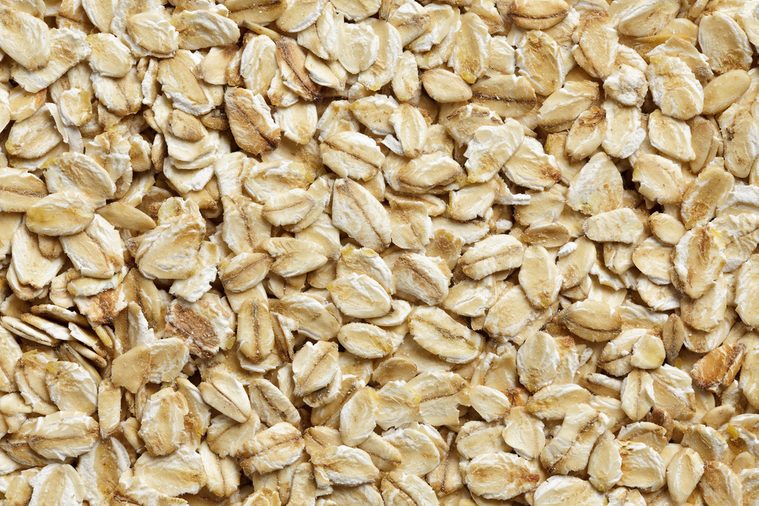
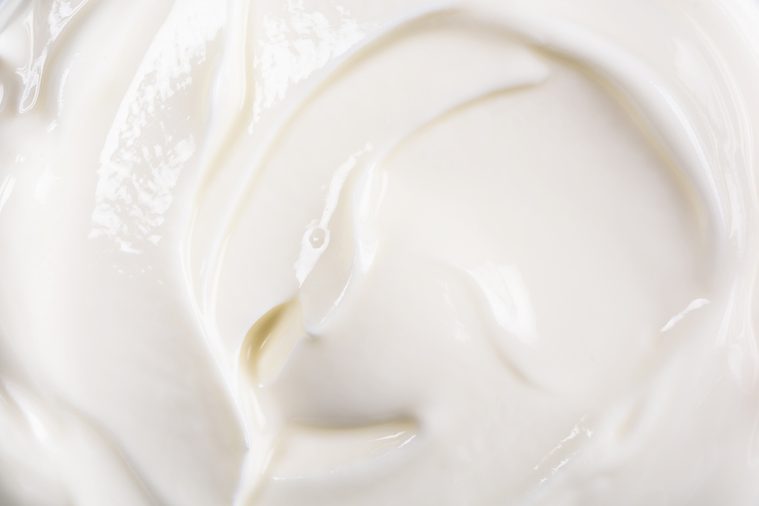
Breakfast: yogurt
A recent study showed that the composition of the skin’s microbiome, its balance of “good bacteria” vs. “bad bacteria,” may help protect against skin cancer. “Researchers found that a unique strain of skin bacteria produces a chemical that kills several types of cancer cells,” Dr. Bowe says. And because our skin’s microbiome is linked to our gut microbiome, she recommends consuming probiotics, found naturally in plain yogurt, to boost the good bugs’ power. “Some strains of probiotics have been shown to protect the skin from UV damage, and other strains have been shown to repair the skin from damage already done by the sun,” Dr. Bowe says. Add fresh fruit to your Greek yogurt for flavor and cancer-fighting antioxidants, and you’ve got a healthy, satisfying breakfast.
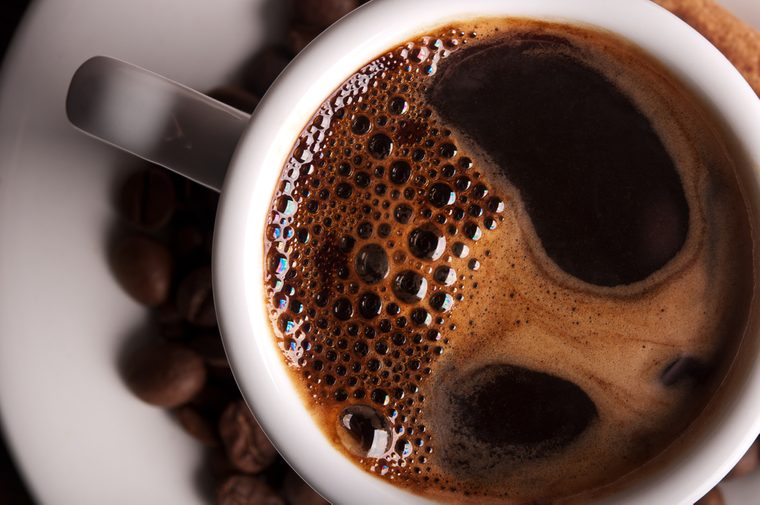
Breakfast: coffee
Good news: Your morning cup of coffee doesn’t just energize you for the day ahead—it can actually help protect against skin cancer, according to research. “Coffee is rich in antioxidants, which help to fight free radical damage that can result in premature aging and sun damage,” Dr. Bowe says. “With respect to skin cancer, studies appear to show that high consumption of coffee might be beneficial in combating skin cancer.” Other studies show that moderate consumption can have some protective benefits too. Find out more ways to cut your cancer risk, according to science.
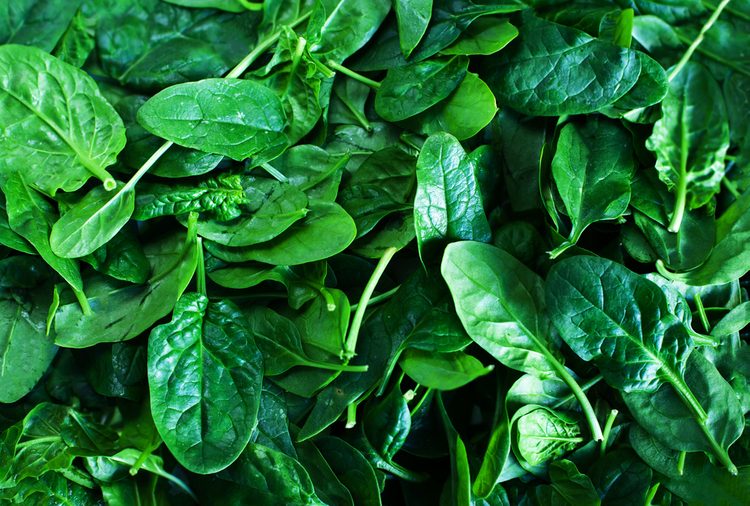
Lunch: dark leafy greens
Following the plant-based Mediterranean diet has been shown to protect against skin cancer, so consider a salad with a base of dark leafy greens for a sun-savvy lunch. “Vegetables are rich in antioxidants like vitamins C and A, which can protect skin from damage and help the skin to repair,” says registered dietitian Erin Palinski-Wade, RD, CDE, author of 2 Day Diabetes Diet. “Fighting against damage from the sun’s rays may be why these foods offer skin cancer protection.” These antioxidants prevent free-radical-mediated DNA damage, as well as cancerous growths that arise as a result of UV radiation—otherwise known as sun exposure, Dr. Bowe adds. Eat more summer superfoods for skin that protects and glows.
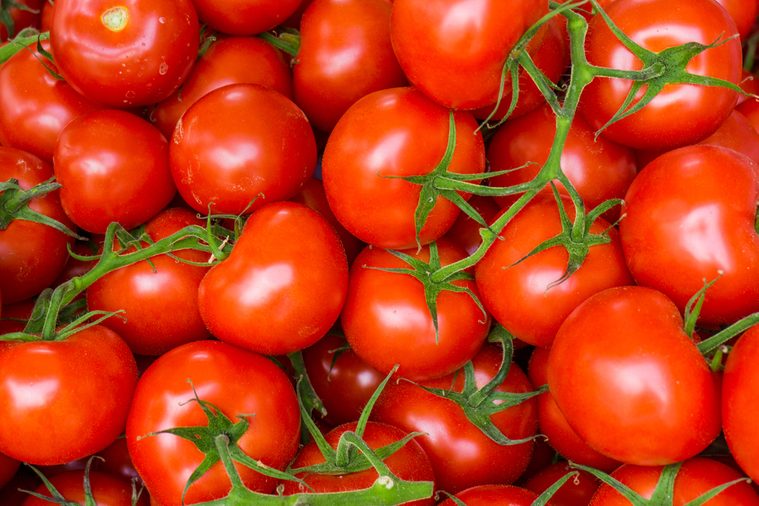
Lunch: tomatoes
If one food could cut your skin cancer risk in half, it would be tomatoes, which are full of the phytochemical lycopene that give them their red color. “Lycopene, found in foods such as tomatoes, can offer powerful antioxidant properties that may be protective to skin,” Palinski-Wade says. One UK study found that subjects whose diets were supplemented with tomato paste for 12 weeks showed protection against sunburn, as well as potentially longer-term skin damage. “Lycopene helps stabilize DNA structures in the nuclei of skin cells,” Dr. Bowe says. “The theory is that the phytochemicals in tomatoes are absorbed in the skin and protect against UV damage.”
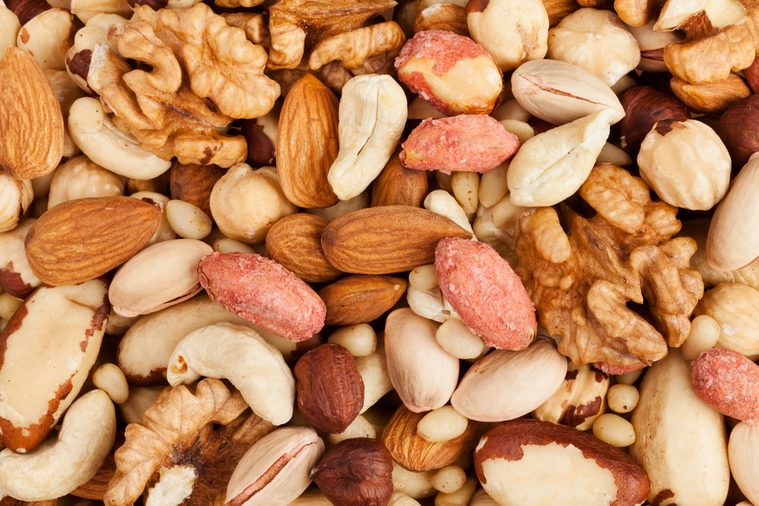
Lunch: nuts
Finish off your mid-day meal with antioxidant-rich nuts. Almonds, for one, are packed with vitamin E, “one of the most important antioxidants in the skin… which helps prevent damage from free radicals, improves the ability of skin to act as a protective barrier and absorb energy from UV light, and also protects sebum [skin’s oily substance] from inflammatory damage,” Dr. Bowe says. Brazil nuts are another healthy choice, packed with the trace element selenium. “Selenium supplements were found to reduce the [mortality rate from] skin cancer, so increasing foods rich in selenium like Brazil nuts may be beneficial,” Palinski-Wade says. These summer foods are healthier than you thought.
Snack: carrots
Which antioxidant-rich fruits and vegetables should you be eating? Carrots offer a satisfying crunch to anyone searching for an afternoon snack—and their orange pigment is evidence of their skin cancer-fighting powers. “Beta carotene-rich fruits and vegetables provide certain health benefits by converting to vitamin A in the body, and may reduce the risk of some cancers,” Dr. Bowe says. This includes skin cancer, according to research. “Beta carotene also boosts the immune system’s ability to fight disease, which is beneficial in combating cancer,” Dr. Bowe says.
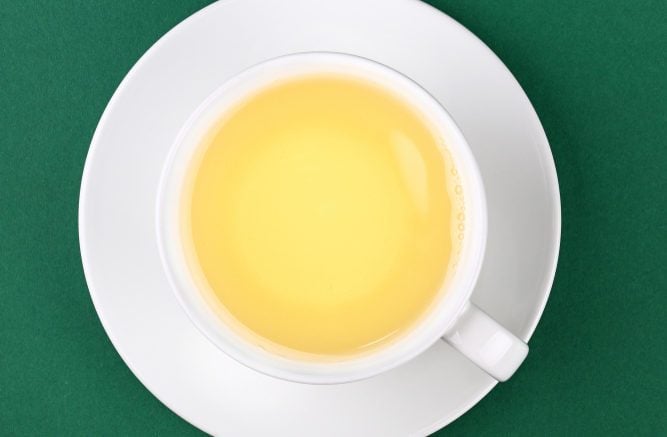
Snack: green tea
Take a cue from the British and indulge in a cup of afternoon tea. Tea offers skin cancer protection—particularly green tea, according to research. “Polyphenols, the flavonoids and catechins [powerful antioxidants] found in green tea, help repair damaged skin and restore elasticity,” Dr. Bowe says. “I recommend that my patients drink green tea to heal their skin from the inside out through the benefits of antioxidants.” If it’s too warm for hot tea, try steeping your own cold tea and drinking it over ice. Find out about more detoxifying ingredients you need to add to your skin-care routine.
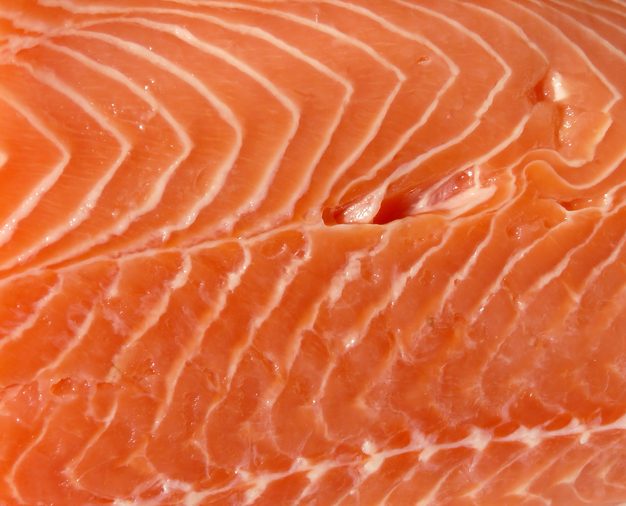
Dinner: salmon
Salmon, rich in omega-3 fatty acids, may be part of the reason the Mediterranean diet is so beneficial for skin cancer prevention. “Studies have shown that eating omega-3 rich foods can offer protection against UV damage, which may reduce skin cancer risk,” Dr. Bowe says. Omega-3s are also thought to reduce inflammation, which is linked with cancer, she says. “Fatty fish contain anti-angiogenic substances,” Palinski-Wade says, referring to substances which prevent new blood vessels from forming. “This may starve cancer cells to potentially reduce the risk of skin cancer.” Try these things dermatologists do every summer that you don’t.
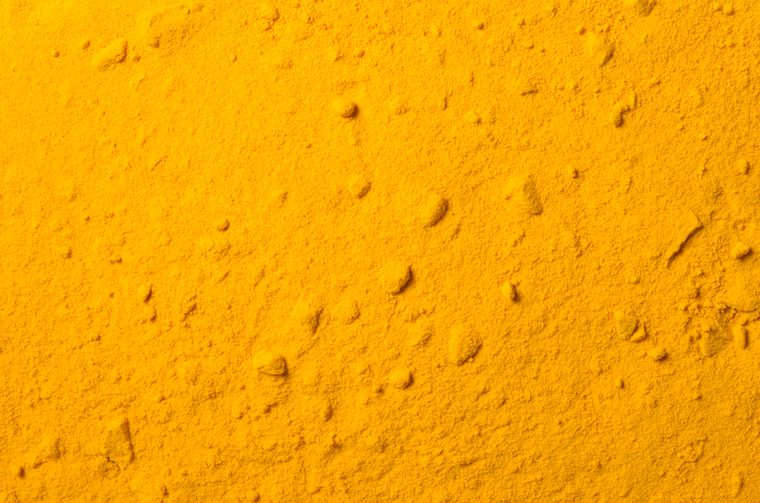
Dinner: turmeric
Season your cooking with skin cancer-fighting turmeric. “A natural anti-inflammatory, turmeric contains active compounds called curcuminoids, which have many cell-protective properties,” Dr. Bowe says. A study from the University of Texas MD Anderson Cancer Center found that curcumin blocks a biological pathway needed for melanoma to develop. In addition, “from a dietary perspective, turmeric’s anti-inflammatory properties can help protect against inflammatory illnesses, including cancer, from the inside out,” Dr. Bowe says. Check out the little-known turmeric benefits for glowing skin and hair.
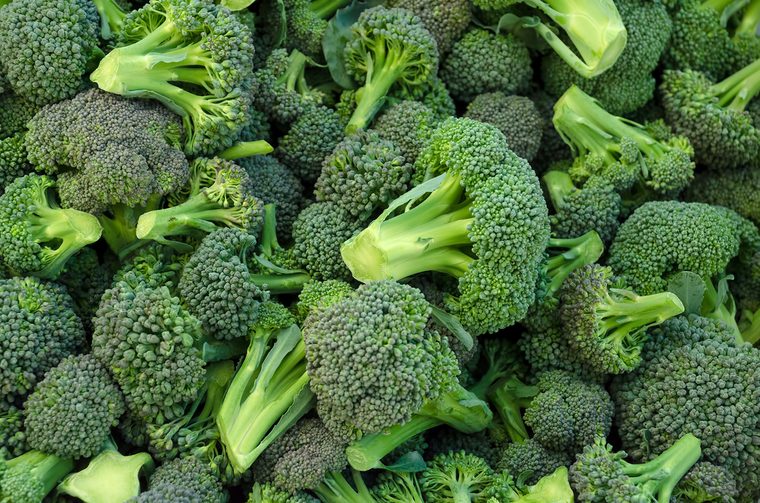
Dinner: broccoli
Eating at least three to five servings of cruciferous vegetables weekly has been found to be protective against melanoma, Palinski-Wade says, so serve it as a side dish. “The compound sulforaphane found in vegetables like broccoli may be why these foods offer even greater protective benefits,” she says. In addition, broccoli contains tons of vitamin C, another protective antioxidant. “Vitamin C helps synthesize collagen, and prevent and treat UV-induced damage,” Dr. Bowe says. These cancer-fighting fruits and vegetables will help keep cancer at bay.
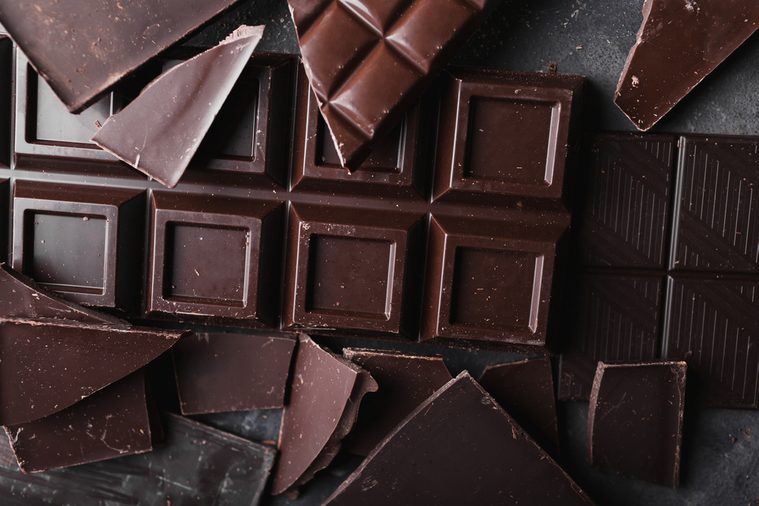
Dessert: dark chocolate
Another reason to indulge in chocolate: Long-term ingestion of dark chocolate has been shown in a German study to protect the skin against sun damage, so it makes the perfect dessert for your summer skin-care diet. This is due to the high flavonoid content from the cocoa plant, Dr. Bowe says. “Antioxidants found in dark chocolate are not only beneficial when consumed, but also are finding their way into skin care,” she says. But it’s so much more tasty to eat it! Don’t miss these other superfoods that stand the test of time.
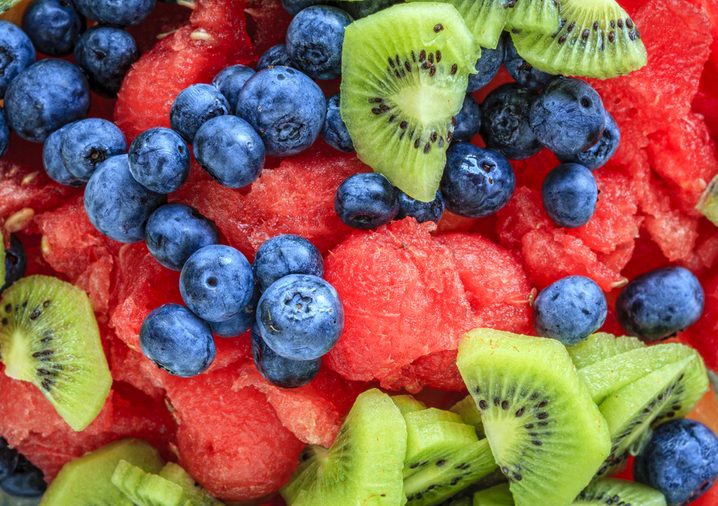
Dessert: fruit
Brightly colored fruits contain antioxidants that pack a punch when it comes to fighting skin cancer, so munch on pomegranates, strawberries, grapes, and cherries. Watermelon is also rich in lycopene; and cantaloupe and mangoes offer beta-carotene. But you may want to get your antioxidants from whole fruit rather than juice, especially when it comes to citrus juice, which may be linked with increased risk for certain skin cancers. “A recent study found that a high intake of citrus fruit juice may increase the risk of melanoma, however more research still needs to be done,” Palinski-Wade says. “Vitamin C can offer many protective benefits to skin, so choosing more whole citrus fruit over juice may be a better option.” Find out other surprising skin cancer risks you might be ignoring.
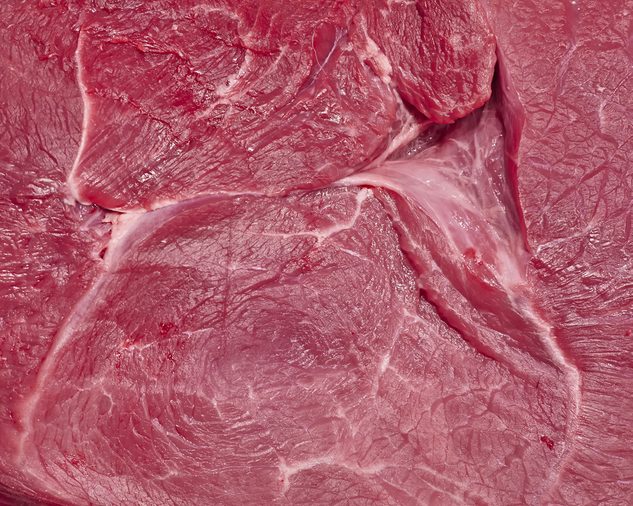
What to eat less of
A study of the dietary patterns of 1360 Australians revealed that those who ate a diet high in “meat and fat” were at increased risk of squamous skin cancer (SCC) tumors, while those who at a diet high in “fruits and vegetables” were at decreased risk. The protective effect of the latter was mostly explained by the association with green leafy vegetables. In short: avoid overeating meat and fat, and make sure you get enough fruit and veg, especially leafy greens. In addition, Dr. Bowe advises steering clear of high glycemic index foods. “Typical high GI foods are of the processed kind filled with sugar and white flour—think chips, pretzels, and most cold cereals,” she says. “Removing the foods which cause inflammation in your body is one great tool in not only staying healthy, but in helping to ward off illnesses like cancer.” Don’t miss the foods cancer docs try to never eat.

